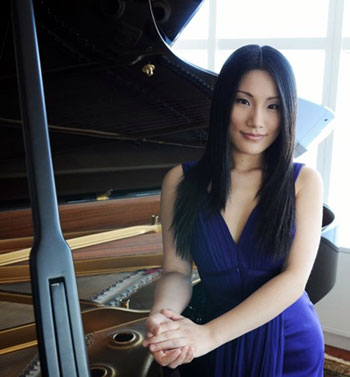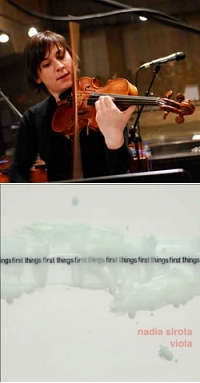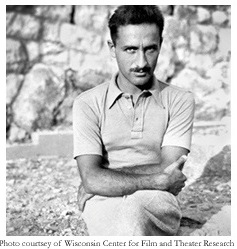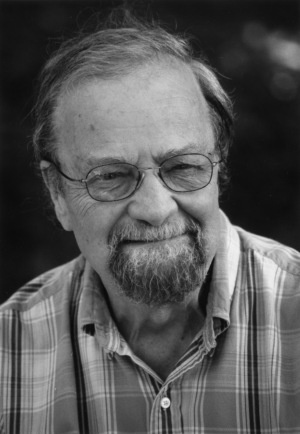Music by Wolff, Sciarrino, Kotik, Carter, and Ligeti / Orchestra of the S.E.M. Ensemble, Ostravská Banda, FLUX Quartet; Petr Kotik, Conductor /Alice Tully Hall, May 6, 2009
Conductor/composer Petr Kotik has been an impressive advocate for contemporary music in New York for forty years. Residing in the US since 1969, he has been running the S.E.M. ensemble since 1970: performing a wide range of repertoire, commissioning works and cultivating successive generations of young players into seasoned new music performers. S.E.M.’s orchestral unit has been active since ’92; Kotik’s also been running Ostravská Banda, an international chamber orchestra comprised of S.E.M. players and young European counterparts, since ’05. Both of these groups, as well as the FLUX string quartet, another youngish ensemble devoted to new music, were featured on Wednesday night’s Tully Hall performance: a program of brand new chamber music and three contemporary works that seem destined for the core repertory.
Christian Wolff’s Trio for Robert Ashley (commissioned for the concert) employed three of the FLUX members – violinist Tom Chiu, violist Max Mandel, and cellist Felix Fan – in a fragmentary multi-movement piece. Indeed, its juxtaposition of seemingly unrelated musical materials set the tone for an evening devoted to unorthodox formal presentation. Sustained notes were set against skittering, Webernian motifs. Single lines evaporated into pensive rests while vigorous tutti were all too ephemeral; evaporating into the silence from when they came.
In its US premiere, Salvatore Sciarrino’s Vento D’Ombra made quite an impression. Another work which employed silences as well as fragmentary gestures as signatures, it focused on tiny musical cells – mostly dyads and trichords – as well as a cornucopia of special effects. Wind and brass players breathed through mouthpieces without fingering notes, strings played scordatura and microtones. The whole was a meticulously shaded pointillist canvas of brief gestures, undulating slides, and pianissimo staccato dabs.
Kotik’s own String Quartet was cast in a lengthy single movement. Impeccably performed by FLUX, it was centered on an ambling, long-breathed melody played by the quartet in unison (later in octaves). Only gradually did this evolve into two-voice counterpoint, with a violin countermelody that took on greater urgency. Tutti passages ratcheted up the tension quotient still further, evocative of some of the brilliant polyphonic passages from Ligeti’s second quartet. The idée fixe unison passage returned at pivotal junctures, requiring precise coordination and tuning on the part of FLUX: both were readily supplied.
Elliott Carter’s recent ‘second piano concerto,’ Dialogues, is a fascinating companion piece to the monolithic concerto from the 1960s. Written for a much smaller orchestra, it allows the soloist to take on an enlarged role. In a clever inverse of its larger precursor, the pianist often overwhelms the ensemble, cowing it with brilliant virtuosity. Daan Wandewalle was an excellent protagonist, supplying brilliant cadenzas, thunderous verticals, and an overarching sense of shaping and musicality. (more…)



 I first pointed you to the amazing young violist
I first pointed you to the amazing young violist  Sequenza21 readers are a quirky and unpredictable bunch. But I’m willing to bet that any of them who show up on Wednesday, May 20, Friday, May 22, or Saturday, May 23 at Davies Symphony Hall in San Francisco will not spend the first half fidgeting around, waiting for the marvelous
Sequenza21 readers are a quirky and unpredictable bunch. But I’m willing to bet that any of them who show up on Wednesday, May 20, Friday, May 22, or Saturday, May 23 at Davies Symphony Hall in San Francisco will not spend the first half fidgeting around, waiting for the marvelous  Given the rarity of records and performances of the music of
Given the rarity of records and performances of the music of 
